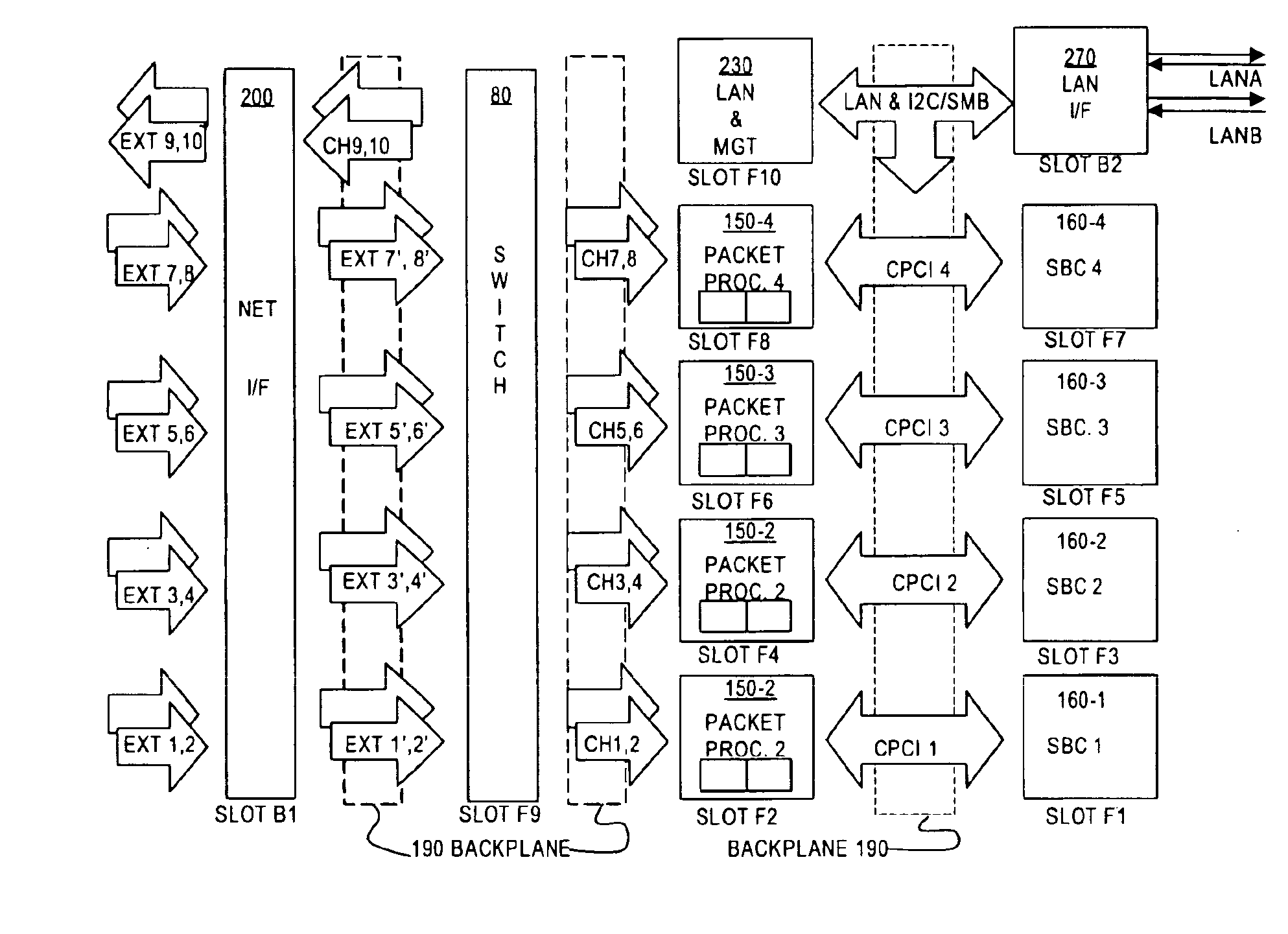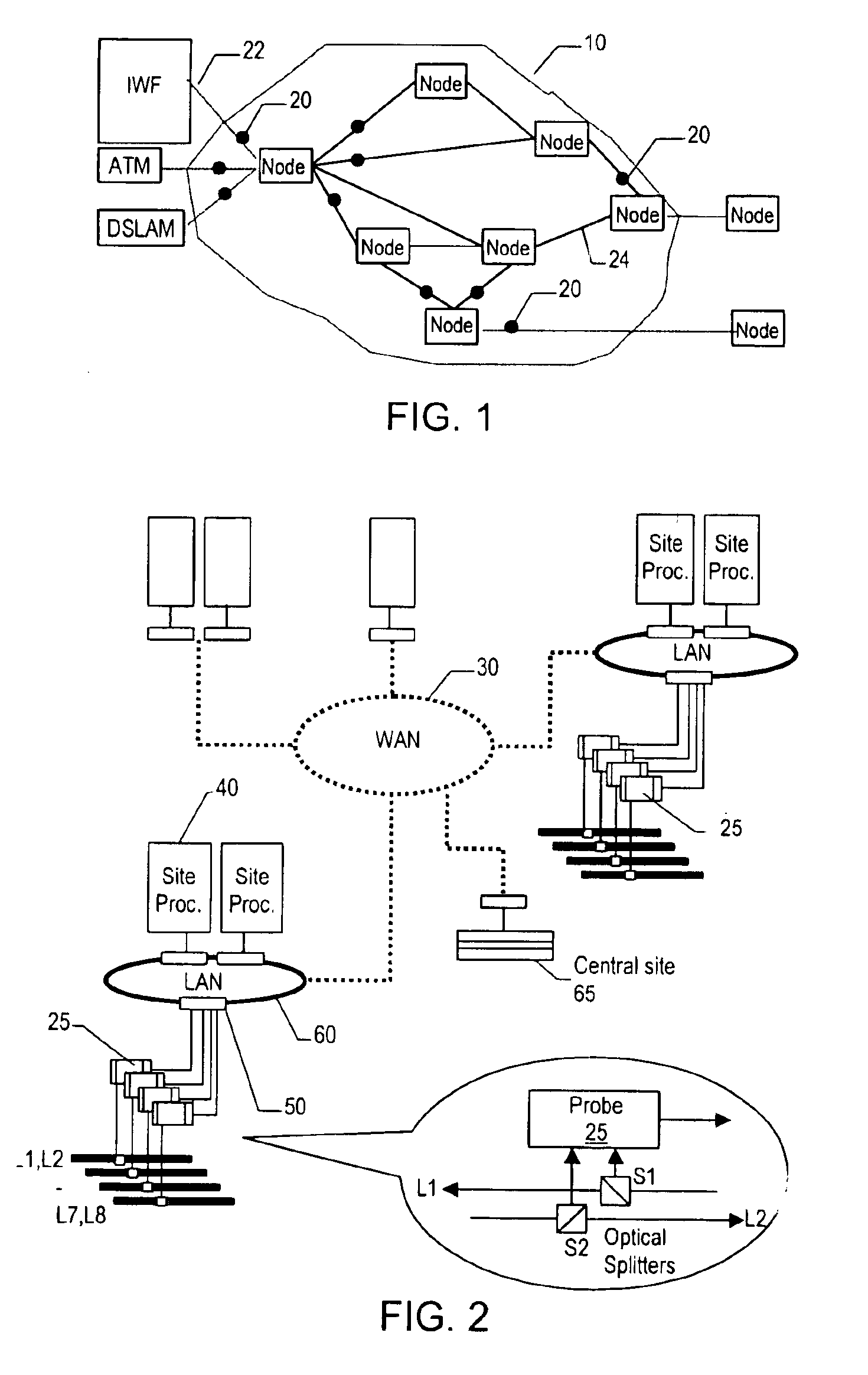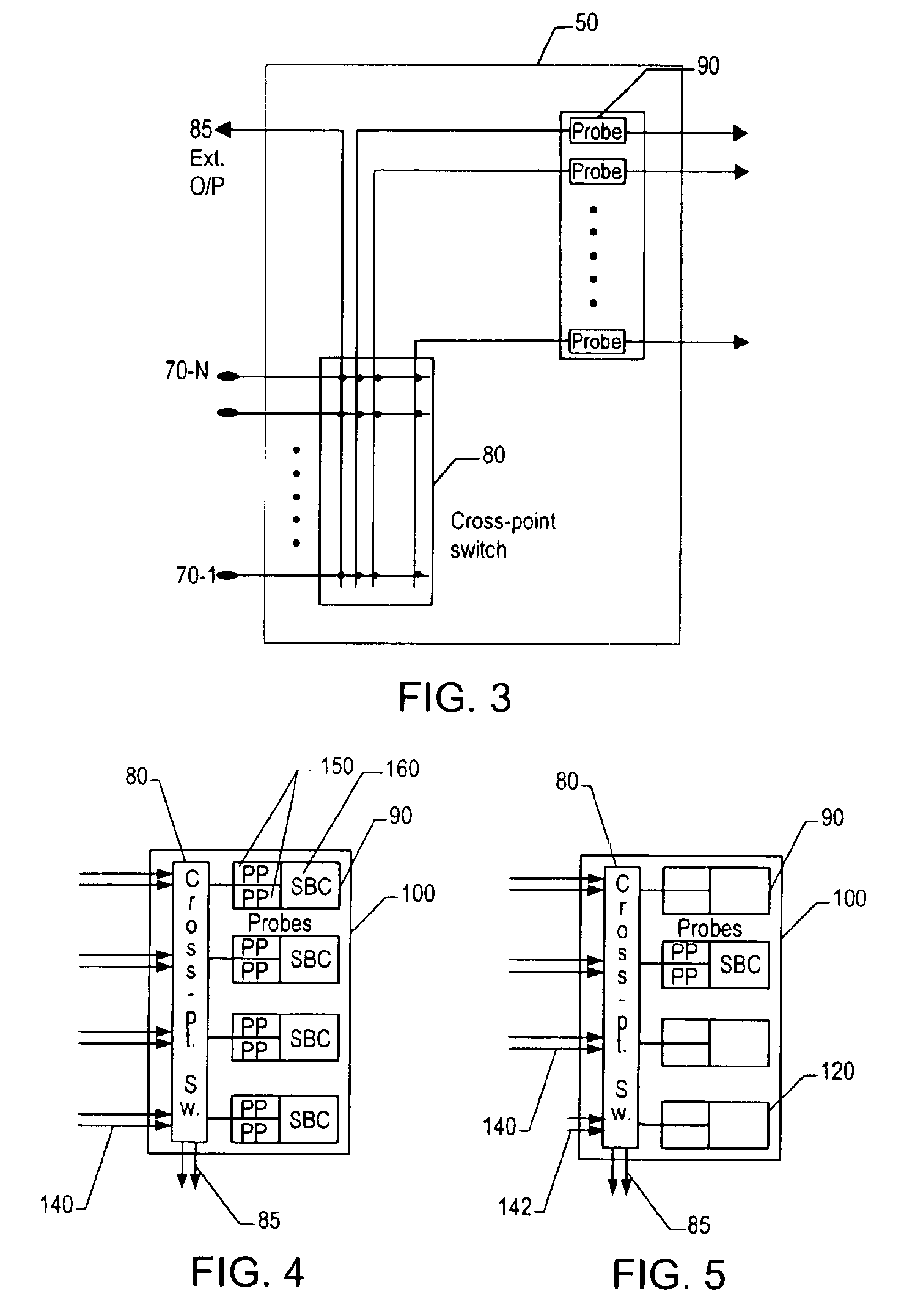Multi-channel network monitoring apparatus, signal replicating device, and systems including such apparatus and devices, and enclosure for multi-processor equipment
a network monitoring and multi-channel technology, applied in the field of telecom networks, can solve the problems of multiplication of losses, inability to consider the approach without due attention to the optical power budget of the bearer, and the quantity of data that needs to be processed for the monitoring of ip traffi
- Summary
- Abstract
- Description
- Claims
- Application Information
AI Technical Summary
Benefits of technology
Problems solved by technology
Method used
Image
Examples
Embodiment Construction
Background
[0104]FIG. 1 shows a model of a telecommunication network 10 based on asynchronous transfer mode (ATM) bearers. Possible monitoring points on various bearers in the network are shown at 20 and elsewhere. Each bearer is generally an optical fibre carrying packetised data with both routing information and data “payload” travelling in the same data stream. Here “bearer” is used to mean the physical media that carries the data and is distinct from a “link”, which in this context is defined to mean a logical stream of data. Many links of data may be multiplexed onto a single bearer. These definitions are provided for consistency in the present description, however, and should not be taken to imply any limitation of the applicability of the techniques disclosed, or on the scope of the invention defined in the appended claims. Those skilled in the art will sometimes use the term “channel” to refer to a link (as defined), or “channel” may be used to refer to one of a number of vir...
PUM
 Login to View More
Login to View More Abstract
Description
Claims
Application Information
 Login to View More
Login to View More - R&D
- Intellectual Property
- Life Sciences
- Materials
- Tech Scout
- Unparalleled Data Quality
- Higher Quality Content
- 60% Fewer Hallucinations
Browse by: Latest US Patents, China's latest patents, Technical Efficacy Thesaurus, Application Domain, Technology Topic, Popular Technical Reports.
© 2025 PatSnap. All rights reserved.Legal|Privacy policy|Modern Slavery Act Transparency Statement|Sitemap|About US| Contact US: help@patsnap.com



